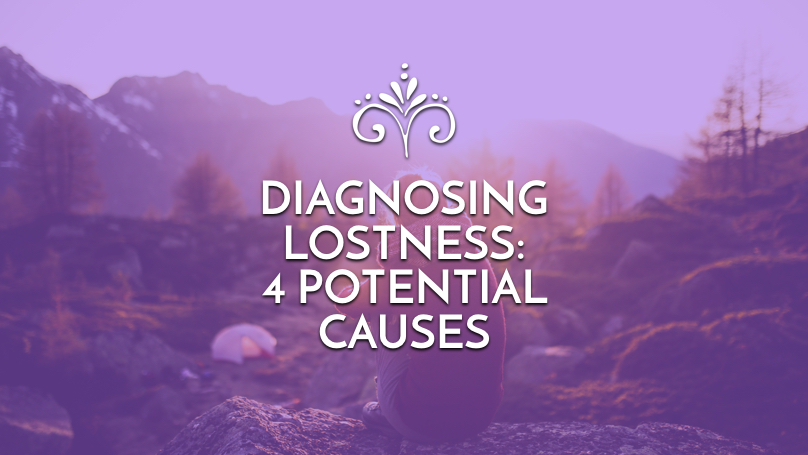This article first appeared in Annie Armstrong Easter Offering material, “Lostness in North America: A Guide to the Future of Faith,” which can be found in it’s entirety at here
One of the simplest reasons why people are lost is their refusal to accept Christ. However, if you were to ask people why, there would be as many answers as there are lost souls.
In Ephesians the apostle Paul, under the inspiration of the Holy Spirit, gave insight into lostness. First, he said Christians shouldn’t boast about not being lost. Paul reminds believers that we were all lost (Ephesians 2:3). He says believers were once dead in their trespasses and sins (Ephesians 2:2). Nothing has changed since Paul’s day … at least not as it pertains to lostness. The world is still characterized by distractions that once plagued the early church.
Ephesians 2 explains and identifies the actions of the lost:
- The lost follow the course of this world and fall prey to lies Satan tells.
- The lost live moment-to-moment and are ruled by worldly motivations.
- The lost pursue desires of the mind and flesh and remain unsatisfied.
These are some of the ways people remain in their sins. Many non-believers don’t comprehend their own lostness. Some may not accept they are lost at all, especially those who believe in a religion that doesn’t acknowledge Jesus Christ as the true Savior.
If we want to fight lostness, we must first understand why the lost live without God.
1. No Christian “sphere of influence”
By some estimates, one in five non-believers in North America aren’t personally acquainted with any Christians. Although 75 percent of Americans identify with a Christian religion, there are millions of lost individuals who are beyond a Christian’s sphere of influence.
There’s a lesson here.
Christians need to make friends with the unsaved. Jesus, who ate with tax collectors and sinners alike, is our example. If He who is perfect could join tax collectors in their homes, we can invite the lost into ours. The idea is not to be disingenuous. Jesus wasn’t. He was genuinely concerned for the lost and was authentic in His love for His friends—so much so that He laid down His life for them (John 15:3).
2. Lack of exposure to the gospel
It’s surprising that anyone in the West can claim having never been exposed to the gospel. Yet as unbelievable as it may seem, there are lost people in the U.S. and Canada who haven’t heard the gospel. How can this be? Is the lack of exposure due to Christians failing to share the gospel with family members, co-workers or friends?
According to a 2013 study by the Barna Group, a leading research organization focused on the intersection of faith and culture, 73 percent of born-again Christians believed they had a “personal responsibility to share their faith with others.” However, only 52 percent admit to actually sharing the gospel at least once. Further proving the state of faith in North America, 33 percent of Christians believed they should evangelize but did not make any attempts to do so.
These statistics prove two things:
1) There’s a disconnect in what Christians believe about sharing the gospel compared to what they really do.
2) The lost can claim never having been exposed to the gospel.
These numbers should also act as a battle cry. Christians who believe the Great Commission should act on it by being “doers of the Word, and not hearers only” (James 1:22).
3. Bad experiences
Bad experiences with the Church or with fellow Christians is often cited as a reason for not accepting Christ, and it’s easy to understand why. The gospel is without error or fault, but its followers are not. A person to be turned off by the insensitive actions of a misguided representative of Christ.
Another way to look at it is Christians aren’t perfect, only forgiven.
The Word of God can also be offensive to those who are unsaved. To develop a relationship with the Father, we must agree we have “sinned and fallen short of the glory of God,”(Romans 3:23) that “like sheep everyone has gone his own way,” (Isaiah 53:6) and because all are sinners, we are deserving of the “wages of sin,” (Romans 6:23) which is eternal death.
This flies in the face of the humanistic theory that man is basically good. People don’t want to accept they are sinners. When faced with this truth, the lost are often offended.
Jesus said, “I am the way, the truth and the life. No one comes to the Father except by
me” (John 14:6). The gospel is exclusive; its exclusivity offends the lost. However, what the
lost fail to understand is that while the Gospel is characterized by exclusivity—salvation through Christ alone—it doesn’t leave anyone out.
Yes, Jesus is the only way to the Father, but the Word of God also declares “Whosoever shall call upon the name of the Lord shall be saved” (Romans 10:13).
4. Pride and arrogance of the lost
Pride is also behind the rise of lostness in North America. Prideful people find it difficult to admit their need for salvation. They feel they don’t need God to be successful or healthy or happy in life. They believe themselves so capable on their own. They believe they are above asking the Lord for help. Sadly, this prideful arrogance is one of the hardest things for nonbelievers to give up before they accept Christ.
There are two verses from the Sermon on the Mount in Matthew 5 where Jesus tells us what it takes to inherit the Kingdom of Heaven. Each speaks to humility.
- “Blessed are the poor in spirit, for theirs is the Kingdom of God” (Matthew 5:3).
- “Blessed are the meek for they shall inherit the earth” (Matthew 5:5).
To be poor in spirit is to come to terms with what is lacking; To become meek, well that’s obvious isn’t it? Coming to Christ is a humbling experience as it requires recognition of one’s great need.
There is hope for the lost.
Despite everything, there’s hope. There are men, women and children in North America that haven’t been exposed to the gospel. Among them, there are many who are hungry to hear the truth about the Lord, but the Bible reminds us: “How shall they hear without a preacher?” (Romans 10:14)
Published November 20, 2017



